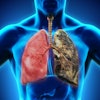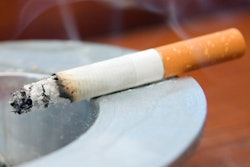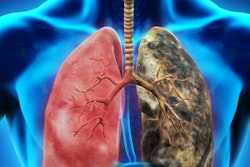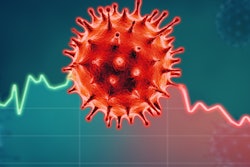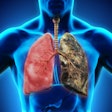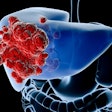
The majority of patients aren't concerned about delays in lung cancer screening with low-dose CT due to the COVID-19 pandemic, according to survey results published October 22 in the Journal of the American College of Radiology.
The findings suggest that delaying these screening exams in the face of a surge in COVID-19 cases is an effective tool for making hospital resources available in an emergency, wrote a team led by Dr. Suzanne Byrne of Brigham and Women's Hospital in Boston.
"Patients felt that rescheduling of lung cancer screening CT was appropriate during the COVID-19 surge," the group wrote.
There was a surge in COVID-19 cases in the U.S. in mid-March, and the U.S. Centers for Disease Control and Prevention (CDC) recommended that healthcare facilities prioritize urgent and emergency care and delay all nonemergency tests, visits, and elective procedures, Byrne and colleagues noted. This led to a drop in nonurgent imaging exams that has yet to recover.
In their study, the group assessed the effects of the CDC recommendation on lung cancer screening at Brigham and Women's Hospital (BWH) and National Jewish Health (NJH) in Denver. Both facilities perform more than 1,200 low-dose CT scans for lung cancer screening each year. Patients who undergo screening at NJH often travel greater distances to do so.
The facilities began to defer lung cancer screening exams after the CDC recommendation; in May, Massachusetts healthcare providers were allowed to resume in-person elective and nonurgent services. Brigham and Women's reinstated routine lung cancer screening on June 1 and prioritized rescheduling for patients with higher Lung-RADS scores and furthest from the recommended follow-up date.
Candidates for CT lung cancer screening at National Jewish Health were rescheduled in mid-March to "a later date" and put on "due" and "overdue" screening lists. On May 4, the hospital began offering routine lung screening at 50% capacity.
Both facilities initiated safety measures such as verbally screening patients for COVID-19 symptoms, limiting waiting room capacity, and increasing the amount of time between scans. Both hospitals also conducted surveys to assess patients' reactions to the rescheduling of lung cancer screening exams.
At Brigham and Women's Hospital, 106 patients had lung cancer screening deferred; 22 participated in the survey. At NJH, 95 patients had lung cancer screening deferred; 22 participated in the survey as well.
The group found that the overall median number of days that CT lung cancer screening was postponed was 88. It also found that 91% of patients felt rescheduling lung cancer screening due to COVID-19 was appropriate.
The group also discovered the following:
- 48% of patients strongly disagreed that the delay would negatively impact their physical health.
- 89% strongly disagreed that postponing lung cancer screening due to COVID-19 would make it difficult to "get back on track with screening."
- 41% strongly disagreed that coming back for lung cancer screening would increase their risk of catching COVID-19.
"[An] organized approach to the rescheduling process with detailed patient tracking ... was effective at both of the studied sites, suggesting this method would again be successful if a second COVID-19 surge necessitates deferring lung cancer screening CT examinations in the future," the group concluded.


